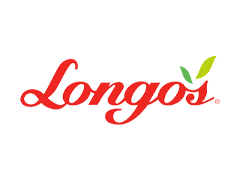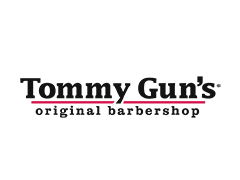Sitting with other fathers and celebrating the Indigenous community as a whole wasn’t always something commonplace in Jason Gobeil’ s household. Fortunately, that is changing for Jason who now manages the Warrior Men’s Program in Manitoba, a Movember-funded program designed specifically for Indigenous fathers and father figures.
The program, which is currently being implemented through Dakota Ojibwe Child and Family Services (DOCFS), brings men from across eight First Nations communities and three Manitoba cities together once a week to help support a greater sense of social inclusion and re-define what it means to be an Indigenous father. Not limited to just an indoor communal setting, the Warrior Men’s Program encourages these groups of men to go out onto the land once a month, helping men and fathers reclaim traditional knowledge and skills. The program uses this technique with the goal that by maintaining these cultural traditions they can play a role in fostering stronger families and a greater sense of shared identity, as these young fathers pass on traditional knowledge to their own children.
Indeed, one of the legacies of colonization and the residential school system has been the loss of indigenous identity. A planned approach towards assimilation, the residential school system was intended to wipe out all traces of understanding and connection to culture. It is for this reason that the DOCFS Warrior Men’s program proudly wear orange shirts on September 30, Canada’s official Orange Shirt Day. Orange Shirt Day, which coincides with the time of year many Indigenous children were taken from their families and sent to residential schools, is a day for reflection and encourages Canadians country-wide to remember the impact the residential school system has had on Indigenous communities and cultural identity in Canada.
These sentiments were much affirmed in the Truth and Reconciliation commission and Aboriginal Justice Inquiry findings and are closely linked to Movember’s organizational mandate. The history of colonization and its impact on Indigenous communities has played an important role on the quality of health and general mental wellbeing of Indigenous men across the county. In some areas of Canada, suicide rates of Indigenous men are 25-40 times higher than the national average*. It is for this reason that Movember has been actively involved in indigenous mental health and suicide prevention programming in Canada for over five years, working to implement a variety of programs aimed at encouraging social connectivity by way of educating and fostering strong cultural traditions and practices for the Indigenous community. The DOCFS Warrior Men’s Group program is one such example, falling under Movember’s Mental Health and Suicide Prevention programming stream. The program is open to all Indigenous fathers and father figures within the communities it operates, including those men who have been touched by the child welfare or the residential school system in some way. While Orange Shirt Day ensures important conversations around cultural tradition continues, important programs like the Warrior Men’s program help foster that discussion all year-round.
Recognizing and acknowledging the intergenerational trauma caused by the residential school system is one of the first steps in bringing about change. “This is history that everyone in Canada is a part of,” program participant Ricky Spence notes. “The impacts of these schools are still being felt today and Orange Shirt Day is one example of how Canadians can help to support these communities in taking ownership of our identities and healing.”
Undeniably, we are in times of immense change for Indigenous people; a change that is built on resilience and reclaiming identity.
“Movember men’s groups, like the Warrior Men’s Program, allows Indigenous men to come together and talk about things that matter to us as Indigenous dads”, says Ricky. “It encourages us to go out on the land and take part in activities like fishing and medicine picking or join ceremonies that we need for our healing to begin. And it brings us together at times like Orange Shirt Day as a reminder to take our power, voice and rights back. Having that power gives me the voice that our Elders never had.”
Clearly our difficult histories are bringing about hope for renewed beginnings among these dads and their children. Let’s hope for a sea of orange this Wednesday September 30.
Sonia Prevost-Derbecker
Sonia is a Global Director for Indigenous Mental Health and Suicide Prevention Programs with Movember.
*Source: https://www.thecanadianencyclopedia.ca/en/article/suicide-among-indigenous-peoples-in-canada



.com_Carousel.jpg)









